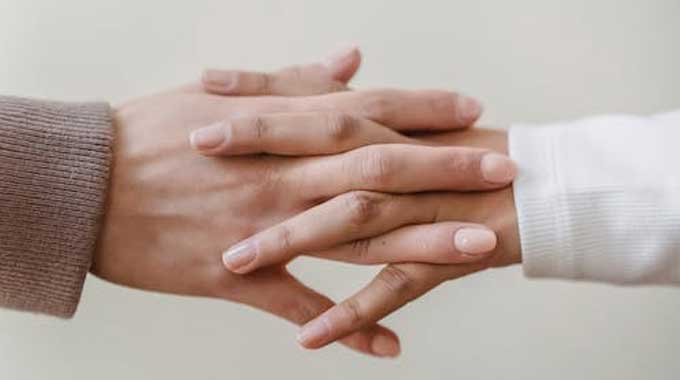Isolation is not a new social phenomenon, and older adults have long been the demographic most subjected to isolation and loneliness. But increasingly, all segments of society are now impacted by the loneliness caused by social isolation.
- What Is Social Isolation
- The Difference Between Isolation And Loneliness
- What Causes Social Isolation
- Social Distancing And Isolation
- How Does Isolation Affect Mental Health
- Effects Of Social Isolation
- Psychological Impact Of Social Distancing
- Overcoming Social Isolation
- Reach Out To Mental Health Professionals
- Reconnecting
- Healthy Lifestyle
- Engaging With The Community
- Connecting With GIA Miami
Unsurprisingly, the ‘loneliness epidemic’ worsened during the COVID pandemic, affecting the mental and physical health of the nation. Enforced and prolonged social distancing changed the nature of our connections with each other, all contributing to negative mental health consequences.
Social isolation has been linked to behavioral and mental health conditions such as substance abuse, depression, and anxiety, and also to a wide array of physical ailments. Indeed, the World Health Organization describes resolving social isolation and loneliness as a public health priority, particularly for senior citizens.
In addition, long periods of social isolation can put people at increased risk of a number of physical health concerns. From cognitive function to heart disease and even premature mortality, feeling lonely and isolated is not supportive of positive health outcomes.

What Is Social Isolation?
Isolation is when a person has very limited contact with other people and the outside world, particularly in-person contact, but also nowadays online interaction. When people choose to isolate, or if they naturally deal with solitude well, it can have certain benefits. Most people enjoy occasional alone time, to wind down, recharge their batteries and relax.
Social isolation happens when a person has few or no social connections. The term usually refers to being alone involuntarily, and it can have significant negative effects on people’s mental health. In the US, older citizens in particular often end up socially isolated – for example, due to living alone, and losing friends or family members. They may also suffer from a chronic illness that limits their mobility and ability to go out and mingle with other people.
In older adults, social isolation and loneliness are serious health risks that can increase the chance of developing conditions such as dementia, according to the Centers for Disease Control and Prevention (CDC).
Social isolation can be both the result of, or the cause, of mental health problems. A person with mental health issues can withdraw from society, become uncommunicative and begin to isolate emotionally too. But as the lockdowns and other restrictions during the COVID pandemic highlighted, imposed limitations on social interactions can be the reason people’s mental health suffers. Social isolation impacts happiness levels and can make people feel gloomy and depressed.
The Difference Between Isolation and Loneliness
Loneliness is the unpleasant and subjective feeling of being alone, regardless of the degree or frequency of contact with others. Some people may feel lonely even when regularly surrounded by others, or in spite of regular contact with them – this is particularly the case for members of minority or immigrant populations who may feel all alone in foreign or alien surroundings or misunderstood.
Social isolation, in contrast, is an objective lack of social relations, or infrequent social contact. Not everyone feels lonely when socially isolated. Nevertheless, the two phenomena overlap. The negative effects of social isolation stem more from the feelings of loneliness and isolation that people experience than from their physical isolation itself.
What Causes Social Isolation?
Various circumstances can lead to people being isolated or choosing to isolate and limit social interactions. Poor mental health can make people want to isolate themselves and be alone. In contrast, prolonged periods of social isolation can make people anxious about going back out into the world and resuming social interaction. They can experience anxiety about the very thing they have craved and have been missing in their lives – contact with other human beings.
A 2021 Harvard report found that 36% of all Americans feel ‘serious loneliness’. This includes no less than 61% of young adults and 51% of mothers with young children. And another report, from the National Academies of Sciences, Engineering and Medicine (NASEM) concluded that more than a third of adults aged over 45 feel lonely, and almost a quarter of adults 65 or older are considered socially isolated. Many of these people experience chronic loneliness.
Common causes of social isolation include the following.
- Living alone: This is often the case with elderly people, who may have lost a spouse, or students renting accommodation after leaving home.
- Abusive relationships: People with an abusive partner may avoid contact with others to avoid the truth of their situation leaking out and from fear of making things worse.
- Remote location: Sometimes work obligations take people to remote or distant locations, in the case of military personnel, for example
- A changing work landscape: A Stanford University study found that in June 2020, 42% of the workforce in the US was working from home full time. The shift to online and remote work was, of course, greatly accelerated by the pandemic, meaning that increasing numbers of people now no longer get to see work colleagues daily and instead spend all their time at home. This limits other human connections they might have, during break times, lunch, and so on.
- Unemployment, or being a stay-at-home parent: The loss or absence of a job can deprive people of the opportunity to go out and work each day surrounded by people. Feelings of shame or depression may also make them more inclined to self-isolate. Parents – mostly mothers – who do not work but stay at home to care for their children can also experience loneliness and isolation.
- Physical health issues: Disability can reduce a person’s mobility, and conditions such as hearing impairment can make communication difficult, particularly for older adults. Both these factors can cause social isolation
- Mental health: People who suffer from panic attacks, anxiety disorder, or obsessive-compulsive disorder may also be more prone to isolating themselves.

Social Distancing and Isolation
Social distancing, or physical distancing, aims to limit the spread of infectious diseases and was implemented during the COVID pandemic. Since it entails no close interaction with other people, sometimes even other family members, in practice, it seriously limits the activities of social groups and makes gatherings impossible.
Thus social distancing, in effect, put an end to religious meetings, sporting events, entertainment, celebrations, public performances, and so many more activities and events that help people stay connected with each other and society.
While all of the above can affect public health, as mentioned above, it is the feelings an individual experiences that cause them suffering. Common reasons people have strong feelings of isolation and loneliness include:
- Going through a relationship breakup or a divorce
- Relocating far away for work or retiring, changing schools
- Having a cultural or language barrier with your surroundings
- Being a victim of bullying – in person or online
- Feeling stressed, burned out, or overwhelmed
How Does Isolation Affect Mental Health?
The short answer is social isolation is detrimental to happiness levels and mental health because it deprives people of regular contact with others and the social interaction on which human beings thrive. That being said, perceived social isolation – the degree to which a person actually feels isolated, regardless of their actual circumstances, is what causes more mental health concerns and negatively affects a person’s wellness.
Effects of Social Isolation
Perceived social isolation can make someone feel they lack the companionship they desire. They may also feel unsupported and not understood by others. Depressive symptoms are among the first negative effects of social isolation and loneliness on mental health to appear. Many people also experience anxiety, loss of self-confidence, low self-esteem, loss of motivation, apathy, and more.
A person’s physical health greatly impacts their mindset and emotions, and the range of conditions linked to social isolation is considerable. Research suggests that social isolation can be a threat to people’s health, particularly for adults aged over 50. It can put them at higher risk of:
- Premature death
- Cognitive decline
- Dementia
- Coronary heart disease
- High blood pressure
Psychological Impact of Social Distancing
Social distancing and other measures taken by authorities during the pandemic impacted people to varying degrees. But some people experienced considerable anger and frustration towards safety measures they considered arbitrary, unjustified, and authoritarian. Even those most supportive of government health policies may have felt dejected and irritable.
Younger people especially may have felt resentful of how such measures deprived them of their social lives and made it hard to stay connected to friends and nurture social ties.
Overcoming Social Isolation
Human beings are by nature sociable, and having at least a close social circle to belong to can decrease loneliness and increase well-being. In fact, healthy and fulfilling social relationships can increase a person’s life span.
During and since the pandemic, mental health services have had to cope with far greater numbers of people reaching out for help coping with social isolation and its effects. One challenge some people face after long periods of social isolation is anxiety. Engaging with the outside world once again, going back to work or to school can seem daunting, and the guidance of a mental health professional may be required to help reduce feelings of apprehension.
The first priority in overcoming social isolation is to resume interaction with other people and cultivate communication. How quickly people return to better mental health depends largely on the individual’s ability to be proactive.
Reach Out to Mental Health Professionals
While there are many things a person can do to help themselves through a period of social isolation, a professional therapist can help evaluate their condition and assess what course of action could be most beneficial. They can also advise on steps to take to better deal with the situation. The help of a clinical psychologist, in particular, can be most appropriate for managing psychological distress.
Reconnecting
Fix a weekly – or even daily – time to speak with a family member. Reach out to someone you have not spoken to in a while, and schedule a call. Even when geographical distance means the person can’t be physically present, a live conversation helps everyone to stay connected. While too much time on social media can actually make people feel more isolated, social media platforms, emails, text messages, and so on are nevertheless valuable as a means of communicating.
Healthy Lifestyle
Research has shown that as little as 20 or 30 minutes of aerobic exercise can greatly improve a person’s mood, thanks to the release of endorphins. While physical distancing, when in place, can make activities like swimming or going to the gym difficult or impossible, physical activity such as walking or running, or even using an exercise bike at home, is still available to provide well-being on a daily basis.
A healthy diet, regular sleep, and relaxing activities such as listening to music are all similarly beneficial and help mitigate the physical health risks of loneliness.

Engaging With the Community
Getting involved in the local community or joining group activities can give a person the social support that will greatly benefit their mental and physical health. Taking up a new hobby, attending a class to learn a new skill, or even volunteering activities are great ways to break free of isolation. Joining community groups that support a meaningful cause is another way to connect with others.
Isolation can be very challenging to cope with, particularly over prolonged periods of time or when it becomes chronic. Some people may even experience it as a threat to their sanity. Not only does mental health suffer when people are socially isolated, but it can also make resuming a more sociable life difficult.
Connecting With GIA Miami
At GIA Miami, our goal is to assist anyone struggling with the effects of social isolation or loneliness to regain a sense of self-empowerment and acquire the tools to cope with their situation.
The cutting-edge treatment and therapies we offer are designed to lead you to freedom from your mental health concerns and back to vibrant well-being. It can be a bit of a journey, but we are here to take you on it with the full support of our team of expert professionals.
Our wellness center is a luxurious and calming space in the heart of Miami. We are accessible by public transport and also have parking facilities. If you need to stay overnight, we can give you information about discounts on hotel rooms.
To find out more, call GIA Miami at 561 468 3575. The phone line is open 24 hours a day.







